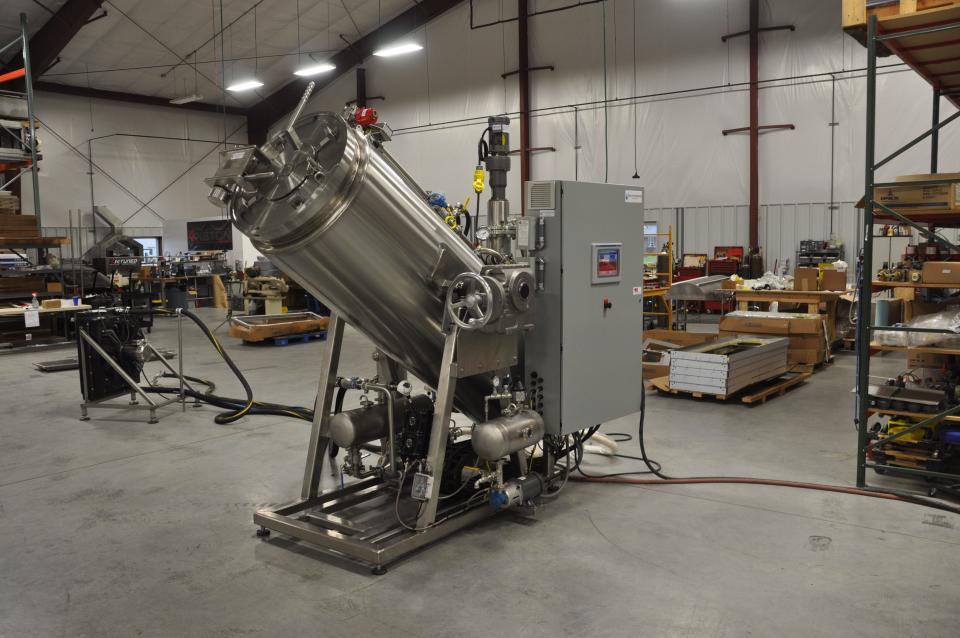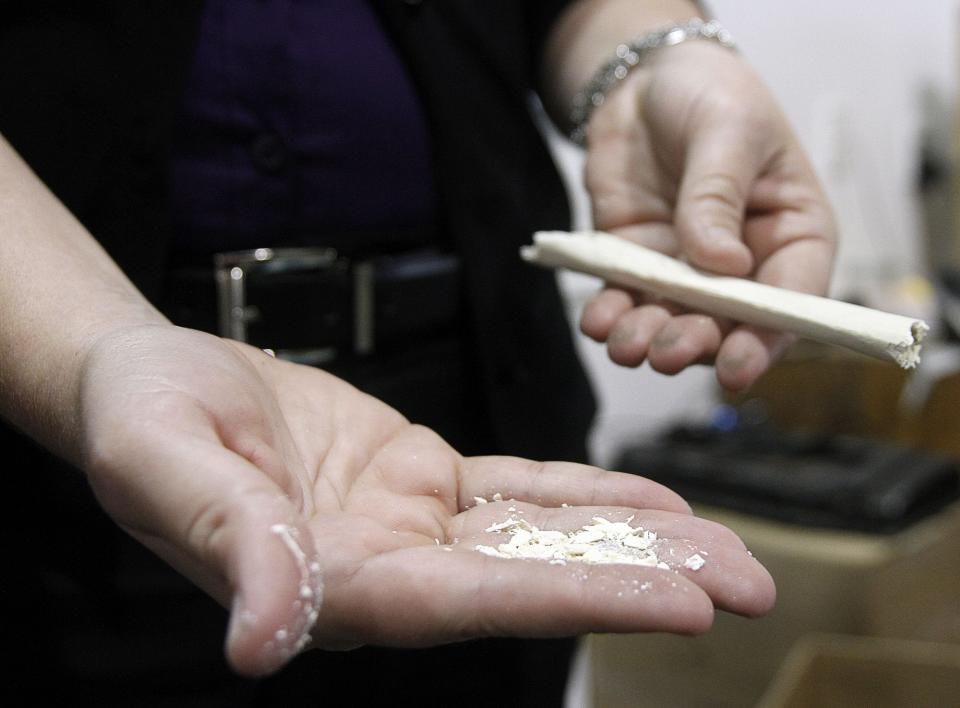'Water cremation' could be coming to Indiana. What is it and why is new option important.
The majority of people in the U.S. are now cremated after death. To most, that means disposing of a body with fire. But proponents are trying to bring a new form of "cremation" to Indiana — one that relies on water rather than flames.
A new bill proposed in Indiana’s legislature this year would legalize alkaline hydrolysis, also called chemical or water cremation. This process also has another name, green cremation, and is promoted as a more environmentally friendly form of disposition.
Supporters of House Bill 1217 said it would give Hoosiers more choices, particularly for those interested in a sustainable after-death option. While still a relatively new form of cremation, the Indiana Funeral Directors Association said members are seeing increased curiosity in alkaline hydrolysis.
The bill’s author, Rep. Mark Genda, R-Frankfort, echoed that sentiment. As a former funeral director, Genda said some families had started asking questions about the process in the years before he retired.
“That’s what this is really all about,” Genda said. “It does have environmental positives, but for me it is wanting to give families in the state of Indiana another option."

Others aren’t sure that option is needed.
“I appreciate trying to create options for consumers, but I don’t believe Indiana is ready to boil their loved ones,” said Paul St. Pierre, a funeral director and representative for the Cremation Society of Indiana.
“Cremation is here and so is burial,” he added, “so I think we have enough options in Indiana.”
The process of alkaline hydrolysis is similar to flame-based cremation, according to the Cremation Association of North America or CANA, in that it results in bone fragments that can be pulverized into ash.
The main difference is how the process happens.
Alkaline hydrolysis uses water, alkaline chemicals and heat, as well as some pressure and agitation, to accelerate natural decomposition. It’s the same process that happens during burial, CANA said, just “sped up dramatically.”
Wildlife: Bill to approve bobcat hunting in Indiana draws many comments, passes out of committee
The process of legalizing alkaline hydrolysis, however, has not been quick. This is not the first attempt at bringing water cremation to the state — it has been proposed at least three times in Indiana’s legislature over the last 15 years, according to Andy Clayton, spokesman for the state funeral director association.
That association has been instrumental in bringing the effort back this year, Clayton and Genda said.
“It’s a matter of if, not when,” Clayton said of the option becoming available to Hoosiers. “Are we having people knock down funeral home doors looking for this, no we are not. But there is interest and curiosity.”

Genda said he's surprised there hasn’t been more movement forward on this, particularly because Indiana is home to one of the premier manufacturers of alkaline hydrolysis equipment, BioResponse Solutions, Inc., is located in Danville.
The bill author has visited their facility, and said it had units being prepared to ship to South Africa, Canada and all over the U.S. Still, it’s not legal in the company’s home state.
Alkaline hydrolysis was first legalized in Minnesota in 2003 and now is approved in roughly half of states across the country. Michigan and Illinois allow water cremation, as well as Tennessee and Missouri, for example. Still, only about 100 funeral homes in the U.S. provide it as an option.
'It's heartbreaking': Proposed warehouse development would destroy Marion County wetlands
Some funeral homes in northwest Indiana, Clayton said, are already taking human remains to Illinois for alkaline hydrolysis because families are asking for it, in part, due to the growing consumer demand in eco-burial options.
Water cremation is considered a more environmentally-friendly option and less polluting than traditional cremation. The process is not reliant on fossil fuels and requires only about a quarter of the energy of flame cremation, according to the Cremation Association of North America. As a result, it produces fewer carbon emissions compared to traditional cremation.

Still, it depends on how one measures eco-friendly. Alkaline hydrolysis does use a significant amount of water: more than 400 gallons per cremation.
Then, after the process is completed, the water is discharged through the wastewater system. Barbara Kemmis, executive director of CANA, said the effluent is sterile. The alkali chemicals are neutralized and react with the body to produce salts, sugars and amino acids, she said. There is no tissue or DNA left when complete, and none going into the wastewater stream.
Kemmis said many wastewater managers she speaks with consider the effluent a welcome addition to the water systems and helps balance the often very acidic wastewater. All wastewater is still cleaned according to federal and local regulations by utilities.
St. Pierre with the Indiana Cremation Society said he doesn’t feel the state is ready to approve alkaline hydrolysis, nor that it needs to. The process requires specialized equipment and therefore is more expensive than traditional cremation.
“The demand will not be there,” St. Pierre said.
Genda’s bill has been referred to the Public Health Committee in the House, but has not been scheduled for a hearing. He said he is trying to get the bill reassigned to a committee with fewer bills to review. The last day for bills to clear the House floor is Feb. 5.
“I know there were families out there asking for an option,” Genda said. “I am passionate about it and believe in it. If it doesn’t go through, we’ll run it again.”
Call IndyStar reporter Sarah Bowman at 317-444-6129 or email at sarah.bowman@indystar.com. Follow her on Twitter and Facebook: @IndyStarSarah. Connect with IndyStar’s environmental reporters: Join The Scrub on Facebook.
Karl Schneider is an IndyStar environment reporter. You can reach him at karl.schneider@indystar.com. Follow him on Twitter @karlstartswithk
IndyStar's environmental reporting project is made possible through the generous support of the nonprofit Nina Mason Pulliam Charitable Trust.
This article originally appeared on Indianapolis Star: 'Green cremation' could be coming to Indiana

